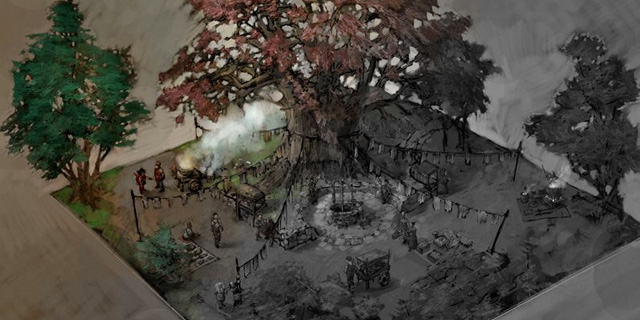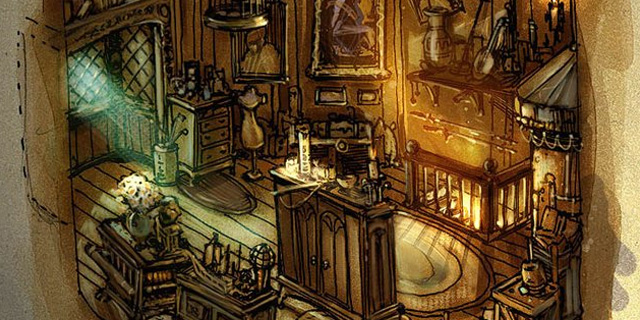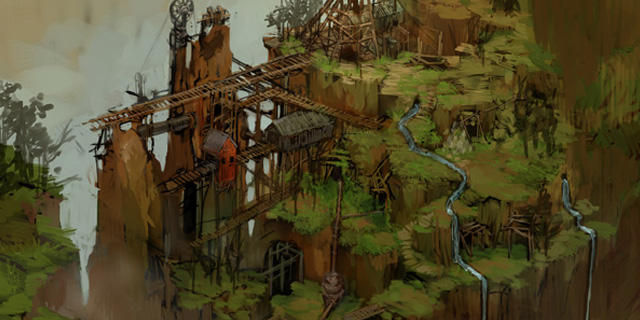
Baldur’s Gate is a legend when it comes to PC gaming. The first two games were already considered some of the best RPGs on the PC, and the Infinity Engine games were all well known among gamers. It is easy to understand why a sequel in the Baldur’s Gate series would be highly anticipated. BioWare’s Infinity Engine went on to power an entire library of RPGs. Following Interplay’s success with Fallout, several employees left the company and formed Black Isle Studios, which would go on to produce Fallout 2, Planescape: Torment and Icewind Dale, and collaborate with BioWare to develop Baldur’s Gate II: Shadows of Amn.
Baldur’s Gate III: The Black Hound
What It Was: A direct follow-up to Baldur’s Gate II by Black Isle Studios and Interplay
What Happened: Interplay’s high-budget PC game business struggled, driving it out of business
Why We Wanted It: It would have continued a beloved franchise still in its prime
Black Isle and Interplay announced Baldur’s Gate III: The Black Hound in 2002. The Black Hound was supposed to use the Neverwinter Nights engine, and thus be in 3D, as opposed to the pre-rendered style of the previous games. As with Neverwinter, it was to use the Third Edition ruleset, and was going to be played from an isometric viewpoint. Later, Baldur’s Gate III got its own engine, called Jefferson, an addition to the existing Infinity engine. Jefferson would also be used for Interplay’s other project, Van Buren.
Where Neverwinter was very much an online sandbox, designed to bring the D&D experience online with custom-built campaigns and a human Dungeon Master, Baldur’s Gate III was to be the full-fledged single-player experience, with a full system of cause and effect. NPCs and the world would react to player actions, or the player’s lack of action; for example, an ignored quest could result in different events further along in the story. The setting was going to be the Dalelands, a region of the same world as the original Baldur’s Gate games, though characters would be unrelated to previous titles. The recurring theme of the game was cause and effect, having to deal with the consequences of player actions. One of the core aspects of the main story was to be a character’s guilt manifesting as a Black Hound, giving the game its subtitle.

During the time of its development, the gaming industry was undergoing a huge change, as consoles began to target older audiences and game consoles had advanced to a point where complex games traditionally limited to a PC release could be produced for a console. Console manufacturers aggressively fought for retail space, while the PC lacked any one entity representing it as a platform. This drove up the cost of selling games at retail, and the PC slowly lost its market share, and as a result, its space on store shelves.
One of the bigger PC publishers, Interplay had a long history in game development and publishing on the PC and was known for publishing games such as Descent, Fallout and, of course, Baldur’s Gate. Unfortunately, the reality of a shrinking PC market hit home, with declining sales and mounting debts, all employees of Black Isle were laid off. Wizards of the Coast did not renew the Dungeons & Dragons PC license, which then passed to Atari, preventing Interplay from continuing development. Interplay would later have to cancel its Fallout project and sell the property to Bethesda to pay its outstanding debts.

The demise of Baldur’s Gate III, and Black Isle Studios itself, is one of the casualties of the then-shrinking PC game market. The end of Black Isle was really the end of an era for PC RPG fans. It might have been interesting to see what might have come from the studio, had it managed to hang on until Steam and digital distribution really took hold and turned the PC games industry into what we know today.
Many of the key developers who worked for Black Isle went on to form Obsidian Entertainment, which became known for its work with BioWare and with Bethesda in producing sequels to well-known RPGs such as Fallout: New Vegas. Currently, Obsidian is working on Project Eternity, a new IP of its own, which was funded through crowdfunding via Kickstarter. Project Eternity shares many aspects of these previous games, and is considered to be a spiritual successor to the Baldur’s Gate series.



















